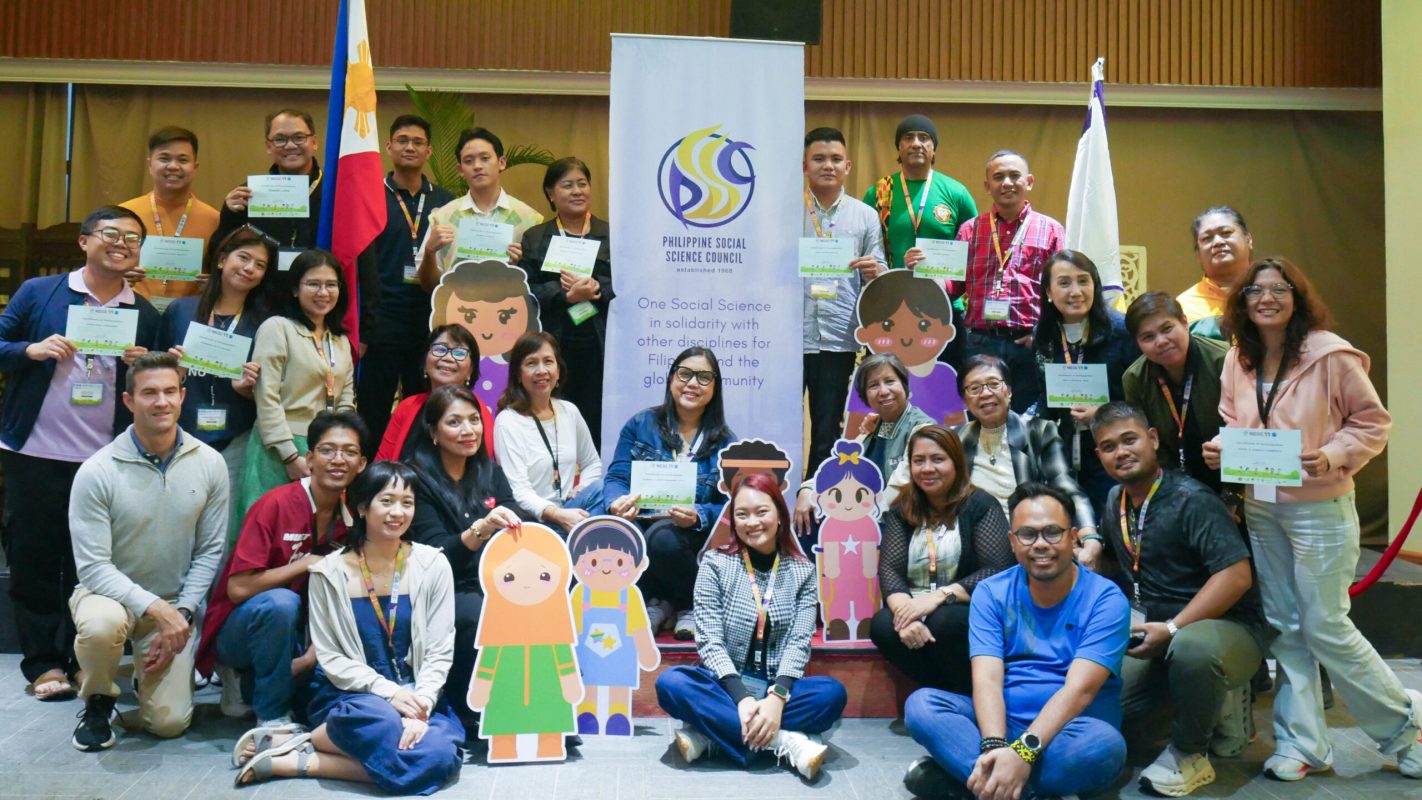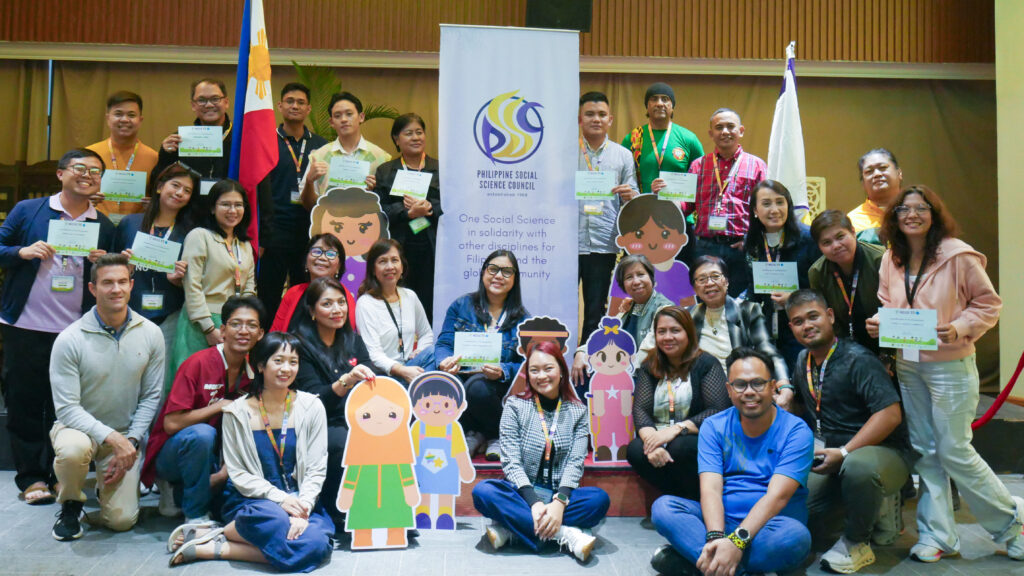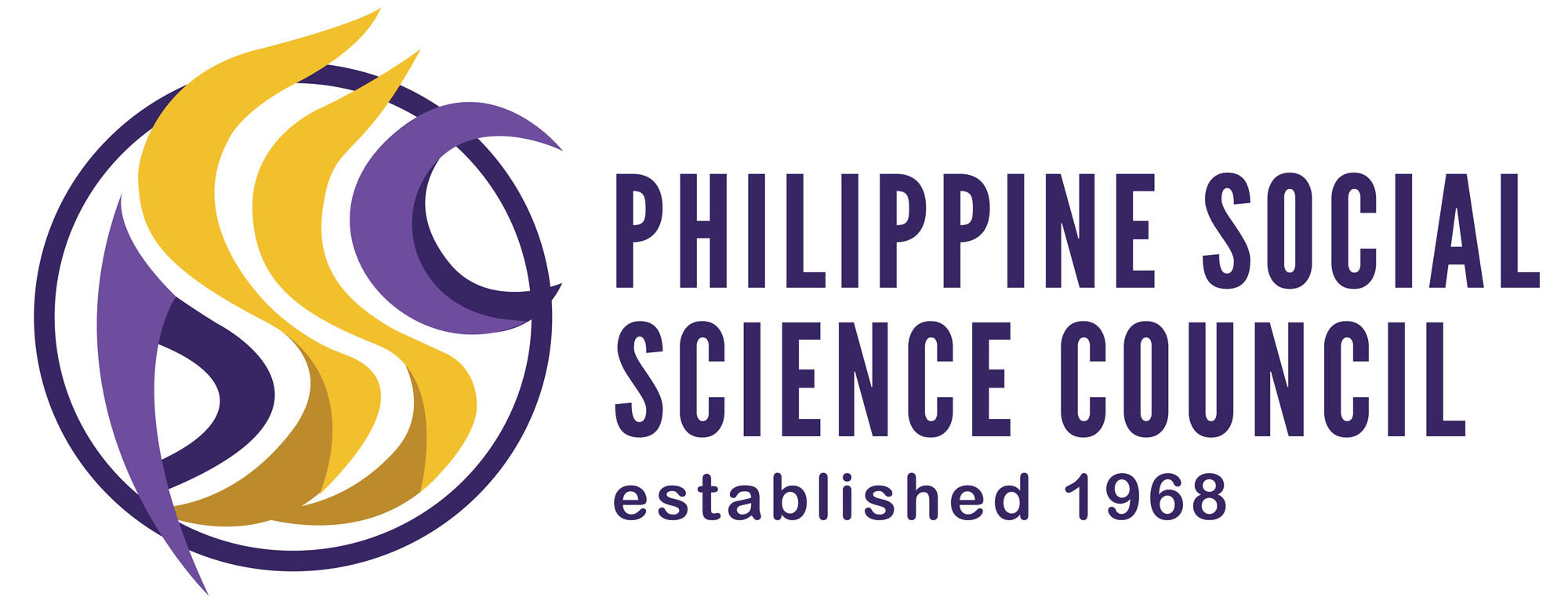NSSC11 brings over 250 children’s rights advocates to Baguio
- Posted on


Baguio City, Philippines – The 11th National Social Science Congress (NSSC11), held on September 18–20, 2025, at the Crown Legacy Hotel in Baguio City, culminated in success with the active participation of over 250 scholars, researchers, policymakers, students, and advocates. Organized by the Philippine Social Science Council (PSSC) in partnership with UNICEF Philippines, the three-day gathering fostered meaningful dialogue on the theme “Munting Tinig: Amplifying Children’s Voices through Social Science Research in the Philippines.”
NSSC11 served as a critical platform to center children’s experiences through social science research, intensify the often-overlooked voices of Filipino children, and empower them to participate as social actors and development stakeholders in their society. Tying this theme altogether, the program was packed with plenary sessions, paper and poster presentations, and panel discussions tackling pressing social issues — all placing children and youth at the heart of their social inquiries.
Keynote Address and Plenary Lectures
Mr. Xavier Foulquier, UNICEF Deputy Representative for Programme, kicked off the program with his keynote address entitled, “Every Child Counts: Driving Change through Data, Evidence, and Knowledge.” Mr. Foulquier drilled down on the current situation of children in the Philippines through data-driven statistics. He emphasized the importance of evidence-based research in surfacing realities of Filipino children, particularly in dimensions of survival strategies, access to education and learning, child protection, safety and sustainability of environment, equitable life opportunities, and civil participation rights.
On the same day, Commission on Population and Development Executive Director Usec. Lisa S. Bersales, delivered the first plenary session of the congress, “Adolescent Health and Responsible Parenthood: Shaping Policies for Child Protection and Well-Being.” In her lecture, she addressed the alarming rise of adolescent pregnancies in the country, stressing on the important, underlying factors driving this issue, such as accessibility to health services, influence of media, intentional sexual activities, and abuse. She called for comprehensive, multi-pronged action plans and policies to prevent unwanted pregnancies and protect young people’s reproductive rights and health.
Plenary sessions were also held on the second day, where child researchers from World Vision presented an inspiring session, “Child-led Research: Children and Youth at the Forefront.” This session centered on how children, when properly supported and given the right opportunities, can engage in research and advocacy that impacts their communities. The presentation featured various examples of youth-driven research where children from World Vision addressed key issues in their communities, such as Project Healthy Horizons, an initiative to combat hunger and malnutrition by reviving school gardens in partner schools.
Later that day, researchers from UNICEF Philippines presented their session, “Bridging the Gaps: Evidence and Action for Children’s Rights in the Philippines.” The session showcased a series of recent studies that collectively revealed critical insights and systemic gaps affecting the well-being of Filipino children, while also exploring evidence-based solutions to address these challenges. One study focused on reinforcing hand hygiene in schools, such as design interventions or “nudges” that effectively encourage handwashing among students. The researchers also reiterated the significance of using local, context-specific data to inform policies and systems for the children, specifically on health and nutrition, poverty alleviation, and education. The session called for stronger collaboration among government agencies, private sectors, and the civil society to further translate this evidence into solutions that include and empower children, especially those in the marginalized communities.

Such discussions underscored PSSC’s commitment to foster critical discourse, promote collaboration, and strengthen advocacy for the realization of children’s rights.
NSSC11 reaffirmed the vital role of the social sciences in addressing national and global challenges and in creating knowledge that can improve the lives of Filipinos. Supported by UNICEF Philippines, Kalinga State University, University of the Philippines Diliman CHE Department of Department of Family Life and Child Development, and Knowledge Channel Foundation, Inc., the congress served as a collaborative platform for advancing research and amplifying voices that are often left unheard.
The next congress, NSSC12, is set to take place in 2026 at the Ateneo de Naga University.
For more information, visit https://pssc.org.ph/nssc-11/.

Baguio City, Philippines – The 11th National Social Science Congress (NSSC11), held on September 18–20, 2025, at the Crown Legacy Hotel in Baguio City, culminated in success with the active participation of over 250 scholars, researchers, policymakers, students, and advocates. Organized by the Philippine Social Science Council (PSSC) in partnership with UNICEF Philippines, the three-day gathering fostered meaningful dialogue on the theme “Munting Tinig: Amplifying Children’s Voices through Social Science Research in the Philippines.”
NSSC11 served as a critical platform to center children’s experiences through social science research, intensify the often-overlooked voices of Filipino children, and empower them to participate as social actors and development stakeholders in their society. Tying this theme altogether, the program was packed with plenary sessions, paper and poster presentations, and panel discussions tackling pressing social issues — all placing children and youth at the heart of their social inquiries.
Keynote Address and Plenary Lectures
Mr. Xavier Foulquier, UNICEF Deputy Representative for Programme, kicked off the program with his keynote address entitled, “Every Child Counts: Driving Change through Data, Evidence, and Knowledge.” Mr. Foulquier drilled down on the current situation of children in the Philippines through data-driven statistics. He emphasized the importance of evidence-based research in surfacing realities of Filipino children, particularly in dimensions of survival strategies, access to education and learning, child protection, safety and sustainability of environment, equitable life opportunities, and civil participation rights.
On the same day, Commission on Population and Development Executive Director Usec. Lisa S. Bersales, delivered the first plenary session of the congress, “Adolescent Health and Responsible Parenthood: Shaping Policies for Child Protection and Well-Being.” In her lecture, she addressed the alarming rise of adolescent pregnancies in the country, stressing on the important, underlying factors driving this issue, such as accessibility to health services, influence of media, intentional sexual activities, and abuse. She called for comprehensive, multi-pronged action plans and policies to prevent unwanted pregnancies and protect young people’s reproductive rights and health.
Plenary sessions were also held on the second day, where child researchers from World Vision presented an inspiring session, “Child-led Research: Children and Youth at the Forefront.” This session centered on how children, when properly supported and given the right opportunities, can engage in research and advocacy that impacts their communities. The presentation featured various examples of youth-driven research where children from World Vision addressed key issues in their communities, such as Project Healthy Horizons, an initiative to combat hunger and malnutrition by reviving school gardens in partner schools.
Later that day, researchers from UNICEF Philippines presented their session, “Bridging the Gaps: Evidence and Action for Children’s Rights in the Philippines.” The session showcased a series of recent studies that collectively revealed critical insights and systemic gaps affecting the well-being of Filipino children, while also exploring evidence-based solutions to address these challenges. One study focused on reinforcing hand hygiene in schools, such as design interventions or “nudges” that effectively encourage handwashing among students. The researchers also reiterated the significance of using local, context-specific data to inform policies and systems for the children, specifically on health and nutrition, poverty alleviation, and education. The session called for stronger collaboration among government agencies, private sectors, and the civil society to further translate this evidence into solutions that include and empower children, especially those in the marginalized communities.

Such discussions underscored PSSC’s commitment to foster critical discourse, promote collaboration, and strengthen advocacy for the realization of children’s rights.
NSSC11 reaffirmed the vital role of the social sciences in addressing national and global challenges and in creating knowledge that can improve the lives of Filipinos. Supported by UNICEF Philippines, Kalinga State University, University of the Philippines Diliman CHE Department of Department of Family Life and Child Development, and Knowledge Channel Foundation, Inc., the congress served as a collaborative platform for advancing research and amplifying voices that are often left unheard.
The next congress, NSSC12, is set to take place in 2026 at the Ateneo de Naga University.
For more information, visit https://pssc.org.ph/nssc-11/.

Baguio City, Philippines – The 11th National Social Science Congress (NSSC11), held on September 18–20, 2025, at the Crown Legacy Hotel in Baguio City, culminated in success with the active participation of over 250 scholars, researchers, policymakers, students, and advocates. Organized by the Philippine Social Science Council (PSSC) in partnership with UNICEF Philippines, the three-day gathering fostered meaningful dialogue on the theme “Munting Tinig: Amplifying Children’s Voices through Social Science Research in the Philippines.”
NSSC11 served as a critical platform to center children’s experiences through social science research, intensify the often-overlooked voices of Filipino children, and empower them to participate as social actors and development stakeholders in their society. Tying this theme altogether, the program was packed with plenary sessions, paper and poster presentations, and panel discussions tackling pressing social issues — all placing children and youth at the heart of their social inquiries.
Keynote Address and Plenary Lectures
Mr. Xavier Foulquier, UNICEF Deputy Representative for Programme, kicked off the program with his keynote address entitled, “Every Child Counts: Driving Change through Data, Evidence, and Knowledge.” Mr. Foulquier drilled down on the current situation of children in the Philippines through data-driven statistics. He emphasized the importance of evidence-based research in surfacing realities of Filipino children, particularly in dimensions of survival strategies, access to education and learning, child protection, safety and sustainability of environment, equitable life opportunities, and civil participation rights.
On the same day, Commission on Population and Development Executive Director Usec. Lisa S. Bersales, delivered the first plenary session of the congress, “Adolescent Health and Responsible Parenthood: Shaping Policies for Child Protection and Well-Being.” In her lecture, she addressed the alarming rise of adolescent pregnancies in the country, stressing on the important, underlying factors driving this issue, such as accessibility to health services, influence of media, intentional sexual activities, and abuse. She called for comprehensive, multi-pronged action plans and policies to prevent unwanted pregnancies and protect young people’s reproductive rights and health.
Plenary sessions were also held on the second day, where child researchers from World Vision presented an inspiring session, “Child-led Research: Children and Youth at the Forefront.” This session centered on how children, when properly supported and given the right opportunities, can engage in research and advocacy that impacts their communities. The presentation featured various examples of youth-driven research where children from World Vision addressed key issues in their communities, such as Project Healthy Horizons, an initiative to combat hunger and malnutrition by reviving school gardens in partner schools.
Later that day, researchers from UNICEF Philippines presented their session, “Bridging the Gaps: Evidence and Action for Children’s Rights in the Philippines.” The session showcased a series of recent studies that collectively revealed critical insights and systemic gaps affecting the well-being of Filipino children, while also exploring evidence-based solutions to address these challenges. One study focused on reinforcing hand hygiene in schools, such as design interventions or “nudges” that effectively encourage handwashing among students. The researchers also reiterated the significance of using local, context-specific data to inform policies and systems for the children, specifically on health and nutrition, poverty alleviation, and education. The session called for stronger collaboration among government agencies, private sectors, and the civil society to further translate this evidence into solutions that include and empower children, especially those in the marginalized communities.

Such discussions underscored PSSC’s commitment to foster critical discourse, promote collaboration, and strengthen advocacy for the realization of children’s rights.
NSSC11 reaffirmed the vital role of the social sciences in addressing national and global challenges and in creating knowledge that can improve the lives of Filipinos. Supported by UNICEF Philippines, Kalinga State University, University of the Philippines Diliman CHE Department of Department of Family Life and Child Development, and Knowledge Channel Foundation, Inc., the congress served as a collaborative platform for advancing research and amplifying voices that are often left unheard.
The next congress, NSSC12, is set to take place in 2026 at the Ateneo de Naga University.
For more information, visit https://pssc.org.ph/nssc-11/.
